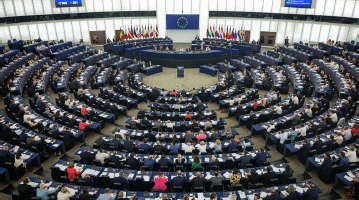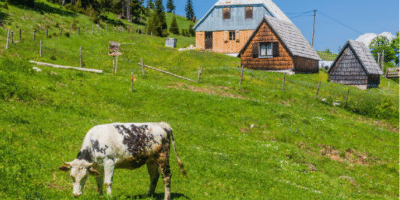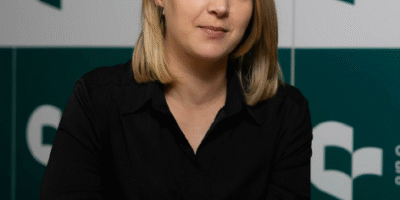Religion should never be the main focus of a society or the driving force behind decisions and prejudices. In Montenegro, however, its role has changed a lot over the years and is now more prominent that ever. Studies comparing attitudes towards religion today versus 30 years ago show a huge shift. In the late 90s, religion wasn`t important to almost half the population, while today, only about 8% of people say it doesn`t matter to them. That`s a fivefold decrease.
This shift isn`t just about personal beliefs it also ties into deeper social issues like economic inequality, weaknesses in the education system, and political divides. Data from the World Value Survey (WVS), which tracks cultural values across different countries, highlights just how much things have changed. In the late 90s, around 32.5% of Montenegrins said religion wasn`t important to them, and 13.3% said it didn`t matter at all. Meanwhile, only 23.8% considered it “very important.“
Fast forward to the latest survey (2017-2022), and the numbers have flipped. Now, 63.1% say religion is “very important“ in their lives, while another 22.8% see it as “somewhat important“. Only 7.7% say it doesn`t matter, and just 5.5% don`t care about it at all. Basically, since the early 2000s Montenegro has been shifting back toward traditional values, and it doesn`t look like that trend is slowing down anytime soon.

The World Value Survey (WVS) groups countries on its map based on cultural similarities, often linked to religion, economic development, and history. For example, Protestant countries like Sweden and Norway lean toward secular-rational values and self-expression, while Islamic countries tend to emphasize traditional values.
The map shows how societies evolve from focusing on basic survival needs to prioritizing freedom, rights, and participation reflecting generational shifts. It`s a useful tool for analysing global cultural trends and predicting social changes.
Montenegro, however, has a long history of relying on informal rules, like the “code of honor``, rather than institutional systems, whose credibility has often been questionable. This historical pattern has created fertile ground for strong religious and traditional influences in shaping social norms, especially during times of political and economic uncertainty.
Instead of encouraging critical thinking and curiosity, the education system has become overwhelmingly stressful and overly formal. This pushes young people away from science and rational thought, driving them back toward traditional and religious values as “safe havens“. One key factor behind Montenegro`s return to traditional values is the historical lack of stable and credible institutions. Without trust in the system, people naturally seek structure and security elsewhere.
Although global trends like digitalization and migration may temporarily encourage more liberal values, they actually strengthen traditional values in societies like Montenegro. It`s fascinating how, despite living in an era of rapid change, Montenegro seems to be holding tighter than ever to tradition. There`s something comforting about familiar values, especially when the world feels uncertain.
But at the same time, isn`t growth about questioning, adapting, and evolving? Clinging to the past out of fear can only take us so far. Instead of seeing new ideas as a threat, maybe it`s time we start embracing them as opportunities and ways to strengthen our identity rather than weaken it. The real challenge isn`t choosing between tradition and progress, but finding a balance where both can coexist without fear or resistance.
Written by our correspondent A.A.



